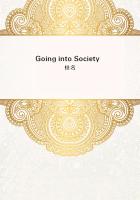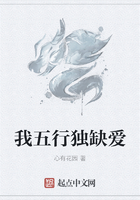"Much as some of the higher classes of the nobility felt aggrieved at the preference given by the Queen to the Duchesse de Polignac, that which raised against Her Majesty the most implacable resentment was her frequenting the parties of her favourite more than those of any other of the 'haut ton'. These assemblies, from the situation held by the Duchess, could not always be the most select. Many of the guests who chanced to get access to them from a mere glimpse of the Queen--whose general good-humour, vivacity, and constant wish to please all around her would often make her commit herself unconsciously and unintentionally--would fabricate anecdotes of things they had neither seen nor heard; and which never had existence, except in their own wicked imaginations. The scene of the inventions, circulated against Her Majesty through France, was, in consequence, generally placed at the Duchess's; but they were usually so distinctly and obviously false that no notice was taken of them, nor was any attempt made to check their promulgation.
"Exemplary as was the friendship between this enthusiastic pair, how much more fortunate for both would it have been had it never happened! I foresaw the results long, long before they took place;but the Queen was not to be thwarted. Fearful she might attribute my anxiety for her general safety to unworthy personal views, I was often silent, even when duty bade me speak. I was, perhaps, too scrupulous about seeming officious or jealous of the predilection shown to the Duchess. Experience had taught me the inutility of representing consequences, and I had no wish to quarrel with the Queen. Indeed, there was a degree of coldness towards me on the part of Her Majesty for having gone so far as I had done. It was not until after the birth of the Duc de Normandie, her third child, in March, 1785, that her friendship resumed its primitive warmth.
"As the children grew, Her Majesty's attachment for their governess grew with them. All that has been said of Tasso's Armida was nothing to this luxurious temple of maternal affection. Never was female friendship more strongly cemented, or less disturbed by the nauseous poison of envy, malice, or mean jealousy. The Queen was in the plenitude of every earthly enjoyment, from being able to see and contribute to the education of the children she tenderly loved, unrestrained by the gothic etiquette with which all former royal mothers had been fettered, but which the kind indulgence of the Duchesse de Polignac broke through, as unnatural and unworthy of the enlightened and affectionate. The Duchess was herself an attentive, careful mother. She felt for the Queen, and encouraged her maternal sympathies, so doubly endeared by the long, long disappointment which had preceded their gratification. The sacrifice of all the cold forms of state policy by the new governess, and the free access she gave the royal mother to her children, so unprecedented in the Court of France, rendered Marie Antoinette so grateful that it may justly be said she divided her heart between the governess and the governed. Habit soon made it necessary for her existence that she should dedicate the whole of her time, not taken up in public ceremonies or parties, to the cultivation of the minds of her children. Conscious of her own deficiency in this respect, she determined to redeem this error in her offspring. The love of the frivolous amusements of society, for which the want of higher cultivation left room in her mind, was humoured by the gaieties of the Duchesse de Polignac's assemblies; while her nobler dispositions were encouraged by the privileges of the favourite's station. Thus, all her inclinations harmonising with the habits and position of her friend, Marie Antoinette literally passed the greatest part of some years in company with the Duchesse de Polignac,--either amidst the glare and bustle of public recreation, or in the private apartment of the governess and her children, increasing as much as possible the kindness of the one for the benefit and comfort of the others. The attachment of the Duchess to the royal children was returned by the Queen's affection for the offspring of the Duchess. So much was Her Majesty interested in favour of the daughter of the Duchess, that, before that young lady was fifteen years of age, she herself contrived and accomplished her marriage with the Duc de Guiche, then 'maitre de ceremonie' to Her Majesty, and whose interests were essentially, promoted by this alliance.















